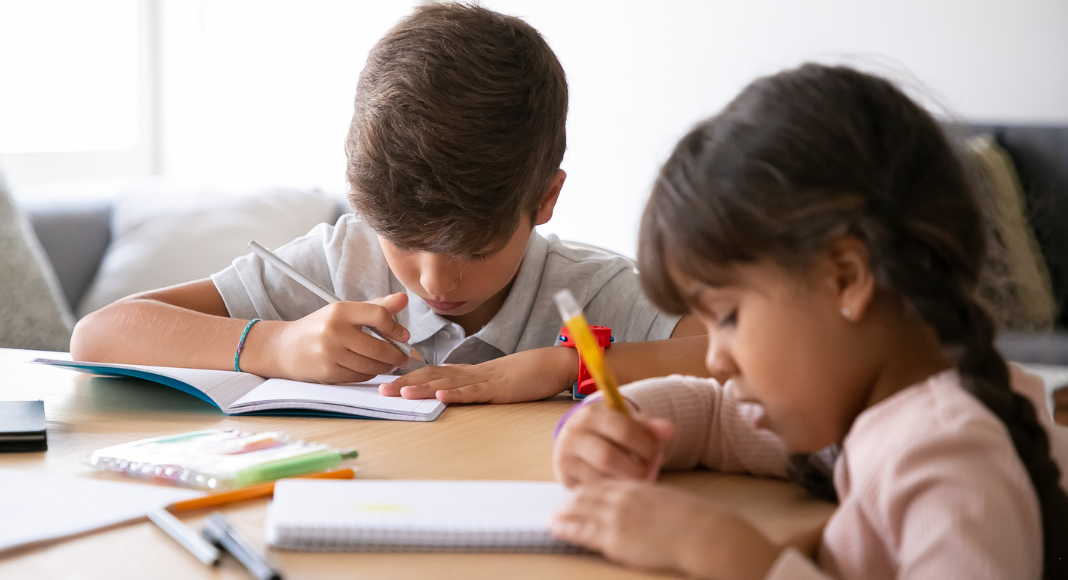 I can’t believe we are getting back into gear for school! As a type-A personality, I love planners, colored pens, Post-its, and various organizational systems. My kids do not share these passions.
I can’t believe we are getting back into gear for school! As a type-A personality, I love planners, colored pens, Post-its, and various organizational systems. My kids do not share these passions.
As a middle school educator, I know how critical executive functioning skills are and that children must be explicitly taught these skills early and often. Did you know that emotional regulation (controlling one’s emotions) is an executive function?
To start the school year off right, I want to share a few strategies for homework and study skills that I’ve found successful and a few new ones that I’ve been researching and will be implementing this year.
First, executive functioning has five key processes – goal setting, planning and prioritizing, organizing, retaining and manipulating information in working memory, shifting flexibly, and self-monitoring/self-checking.
External supports such as checklists, visual schedules, and prompts can be helpful if they are placed at the point of performance, meaning where the actual task will occur. For example, a checklist with items to pack in a bookbag should be placed wherever the bookbag lives (mudroom, bedroom, hallway, etc.) to be visible and a reminder that can be directly addressed.
For a checklist to be most effective for a child, it’s helpful for the child to understand what they need help with and to understand their strengths and weaknesses. For example, if my daughter’s teacher reminds her to charge her laptop every morning, we would add “charge laptop” to her afternoon routine checklist. If my son is prompted to check his writing for correct capitalization and run-on sentences, we would make an “editing checklist” in his homework area that includes “check for correct capitalization” or “check for run-on sentences.” I would not include correct spelling or paragraph form on his checklist because he’s consistently demonstrated these skills.
How do I help my child identify their strengths and weaknesses? One easy way to do this is a quick reflection after completing homework or getting a test back. You may want to start by trying each strategy to prepare for a quiz with your child. Strategies can include flashcards, acronyms, mnemonics, two-column notes, drawing a map/web, or discussing the topic with a parent.
After receiving test results, review with your child which strategy they used and jot it down in a notebook or on a chart with the subject and date. This will provide black-and-white evidence when choosing effective study strategies to identify your child’s strengths and weaknesses.
Children lack time awareness. To build this skill, first, have your child estimate how long a specific homework task will take them. Then, set a timer for that timeframe or a stopwatch to observe the running time. Compare the child’s estimate with the time it took them to complete the task. If your child struggles to read consistently for 20 minutes, break up the reading into smaller blocks of time and gradually increase those time increments to have longer, fewer reading sessions.
It is typical for your child to need to build up their stamina for focused academic work after not being in school for two months.
Does your child have after-school activities or have to attend siblings’ practices or games? A strategy I’ve found helpful is to provide the child’s nightly schedule for the week to the child on Sunday night. You or your child can write these commitments at the bottom of their planner under the appropriate day so they can see when they have enough time to complete tasks requiring more focused time and break up a more extended project into smaller chunks.
Breaking down a larger project, such as a research presentation, into smaller chunks in their planner makes a task that might otherwise seem overwhelming appear doable. If I see “complete three research cards” on Monday night, “complete three research cards” on Wednesday night, and “choose two topics for a graphic organizer” on Thursday night, the presented task, “research a science topic of your choice and prepare a 10-minute presentation” seems less daunting. Most children will need support with this, and the more practice they get with these discrete skills, the quicker they will become automatic strategies to use in their toolbox.
Set up a homework routine, including a location. This can be challenging with competing schedules in the household and finding a place that is quiet enough (without distractions) yet also within the eyesight of an adult. Your child may prefer to work at the kitchen table so they can ask you clarifying questions while working on a task, or your child may choose to lie on the floor of their bedroom. If your child is younger and struggles to focus on homework, keep them in a location where you can observe their on-task behavior instead of working in their bedroom, out of sight.
























